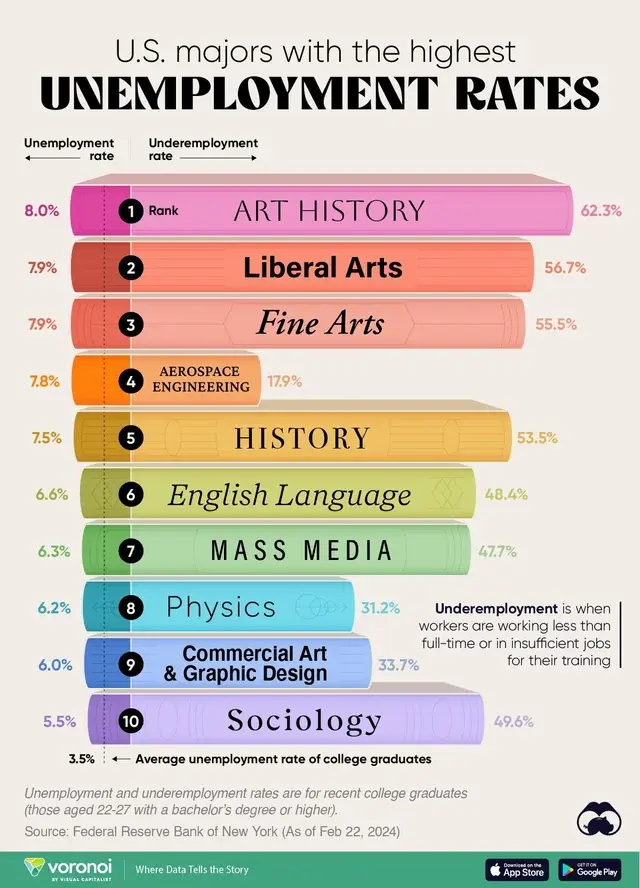Cool Guides
Rules for Posting Guides on Our Community
1. Defining a Guide Guides are comprehensive reference materials, how-tos, or comparison tables. A guide must be well-organized both in content and layout. Information should be easily accessible without unnecessary navigation. Guides can include flowcharts, step-by-step instructions, or visual references that compare different elements side by side.
2. Infographic Guidelines Infographics are permitted if they are educational and informative. They should aim to convey complex information visually and clearly. However, infographics that primarily serve as visual essays without structured guidance will be subject to removal.
3. Grey Area Moderators may use discretion when deciding to remove posts. If in doubt, message us or use downvotes for content you find inappropriate.
4. Source Attribution If you know the original source of a guide, share it in the comments to credit the creators.
5. Diverse Content To keep our community engaging, avoid saturating the feed with similar topics. Excessive posts on a single topic may be moderated to maintain diversity.
6. Verify in Comments Always check the comments for additional insights or corrections. Moderators rely on community expertise for accuracy.
Community Guidelines
-
Direct Image Links Only Only direct links to .png, .jpg, and .jpeg image formats are permitted.
-
Educational Infographics Only Infographics must aim to educate and inform with structured content. Purely narrative or non-informative infographics may be removed.
-
Serious Guides Only Nonserious or comedy-based guides will be removed.
-
No Harmful Content Guides promoting dangerous or harmful activities/materials will be removed. This includes content intended to cause harm to others.
By following these rules, we can maintain a diverse and informative community. If you have any questions or concerns, feel free to reach out to the moderators. Thank you for contributing responsibly!
view the rest of the comments

Why is physics on this list? Seems a bit of of place
A lot seems out of place.
Is it useful to know that liberal arts majors are 7.9 unemployed without the larger context of how many liberal arts majors there are?
I might not be explaining myself well, but it feels like there is an error with the chart. Not exactly the same type of write you get from every map of x thing just being another population density map, but the same type of error for not adjusting for that type of thing.
I'm other words, I thought liberal arts was the most common major so I would've expected it to be closer to the national average.
The total number of LA holders is irrelevant since everything is presented on a percentage basis. The fact that it isn't close to the national average is evidence of being different from the overall population.
Although, I suppose an overabundance of LA degree holders could lead to higher unemployment. But that doesn't change the conclusions that can be drawn from the chart.
Edit: rereading the thread, I agree with your point that the graph is only showing which majors have high unemployment rates. Where that cause stems from (too many people with those majors for instance) isn't the intention of the graph. Not certain I agree fully with your statement
Is a liberal arts degree hard to get a job with because of too many people with the degree, or because there isn't sufficient transferrable skills included in the degree? All we know is that these jobs aren't best for securing a job after graduation.
I think we agree with each other. The only question the chart answers is whether or not these degree holders experience higher underemployment than the overall population. The question of why is irrelevant to this chart.
I was trying to disagree with the OPs skepticism that the chart is somehow misleading because it ignores the number of LA degree holder.
How many physicists do you know? There are only so many research labs out there. The physics majors probably do better than w art history majors because they can often pivot to something like software development.
I majored in physics, even living in a country with a ton of technology companies. There are only so many research labs, and only very few companies want dedicated physics people. Often they just want to run a mechanical simulation known as FEM, they hire mechanical engineers for it.
Also, physics is very broad. While companies are usually looking into a specific topic. If you didnt happen to stumble in the right area of physics you might not have valuable knowledge for a company. Often a Physics education is not even focused on deepening a specific topic, but more on how to solve complex problems. In my opinion that can be applied to many problems we face today, if given the chance.
Physics education is based on the idea of a renaissance man, one who knows how everything works. Companies simply don't care about that.
Seems like "Business" and "Communications" degrees should be included.
Because physics graduates have a high unemployment rate compared to other degrees. So how is it out of place? Not all stem degrees are good for getting a job. There aren’t many careers where a physics degree gives you directly marketable skills. You either go into physics research or astronomy research, and you need a phd for both. Most people with a physics degree end up having to spend time specializing in something else.
Why would a company hire an engineer with a physics degree when they can an engineer with an engineering degree? Physics is a very generalist field.
You’d think people with engineering degrees would have a wide swath of jobs to choose from. Physics is a huge field, and the math is applicable to a lot of things. Same with aerospace. I’d think aerospace people could get jobs in the military or automotive industries. Not just NASA or Boeing.